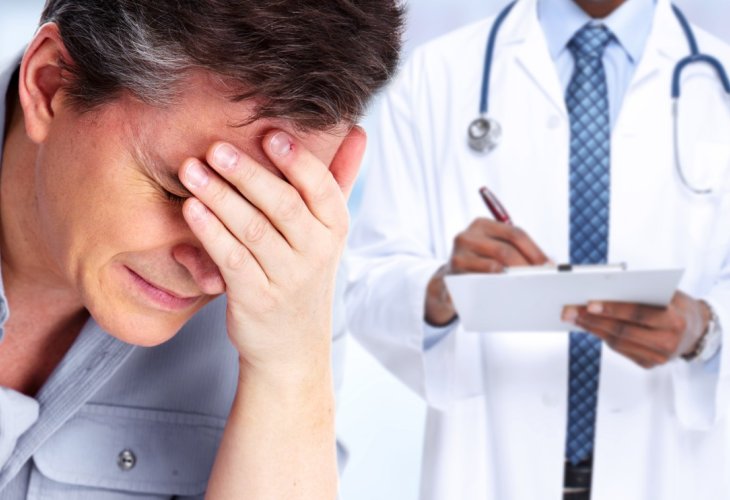Depression and Anxiety
Understanding Clinical Depression: Symptoms, Diagnosis, and Effective Treatment
Learn how to recognize the signs of major depressive disorder, how it’s diagnosed, and what treatment options can lead to lasting recovery and improved mental health.
 (Photo: shutterstock)
(Photo: shutterstock)People today often use the word “depression” loosely. If someone has a bad day, they might say, “I’m depressed.” If someone seems sad, others might say, “He’s depressed”. However, depression isn’t just a synonym for sadness or a bad mood. It is a real illness, and it appears in many forms, such as postpartum depression, mild depression, psychotic depression, melancholia, treatment-resistant depression, and more. Each of these presents differently, in varying degrees of severity and with different symptoms.
The most serious type of depressive disorder is clinical depression (also called major depressive disorder). Clinical depression is a significant mental health condition that affects a person’s behavior, functioning, emotions, and thinking.
Most people imagine someone with depression as someone who is sad all the time. Visible sadness is only one symptom, and often doesn’t appear at all. In fact, you may not see anything from the outside to suggest the person is struggling, even if they’re suffering from major depression.
How Do You Recognize Depression?
Depression isn’t always what you think. How, then, can you recognize it in someone? How do you know if they’re dealing with depression or something else?
Following are the most common symptoms of clinical depression, which can help with identification:
A significant, long-term drop in mood (lasting at least two weeks)
Avoiding activities they used to enjoy, and lack of motivation
Feelings of guilt, anger, or irritability
Appetite changes- often loss of appetite, but sometimes the opposite of increased cravings and overeating
Sleep disturbances- trouble falling asleep, frequent waking, or sleeping excessively
A general inability to enjoy life- even things they used to find pleasurable
Fatigue and low energy for at least two weeks (not just occasional tiredness)
A major drop in day-to-day functioning or a noticeable shift compared to their normal abilities
These symptoms cover physical, emotional, behavioral, and cognitive aspects. However, each person may experience a different combination and severity of symptoms.
How Is Clinical Depression Diagnosed?
Once symptoms are observed, proper diagnosis is essential. The symptoms listed above- even if they persist for weeks- might also point to other issues, such as other mental health conditions or physical illnesses. If several symptoms appear and depression is suspected, a professional diagnosis is necessary, which requires a visit to a clinical psychologist or psychiatrist. Professionals use various tools like standardized depression assessments, mental health evaluations, and sometimes in-depth psychological testing (e.g., Rorschach, TAT, Bender tests) to reach a reliable diagnosis.
In many ways, diagnosing depression is a process of elimination. Since each symptom might have another explanation (medical, emotional, or substance-related), part of the diagnostic process is ruling out other causes. Three key criteria help confirm clinical depression:
A noticeable emotional or mental change in the person
Persistent symptoms that interfere significantly with daily life
No other clear explanation for the symptoms
How Is Clinical Depression Treated?
Someone with depression may feel hopeless, like they’ll never feel better, although studies find that 80–90% of people with depression improve significantly with the right treatment.
It’s important to note that many people experience a depressive episode at some point in life- often triggered by a major life change, crisis, or personal struggle. These episodes typically resolve on their own. Clinical depression however is persistent and won’t go away without treatment. Also, just because one episode passed, it doesn’t mean it won’t return. Seeking support is therefore vital, even for a first-time episode.
Treatment for clinical depression often includes a combination of:
Medication, prescribed by a psychiatrist, tailored specifically for the patient. Some adjustment time is usually needed before effects are felt.
Psychotherapy or behavioral therapy, often used alongside medication to improve long-term outcomes.
Even after medications begin helping, they should not be stopped abruptly. A typical treatment period is 4–9 months or longer, depending on the case. Some argue that antidepressants should be taken long-term or for life, while others believe that with proper therapy, medications can eventually be phased out.
Clinical depression is a serious but treatable condition. Recognizing the symptoms, getting a proper diagnosis, and committing to a personalized treatment plan can help people regain their quality of life, and prevent life-threatening outcomes.

